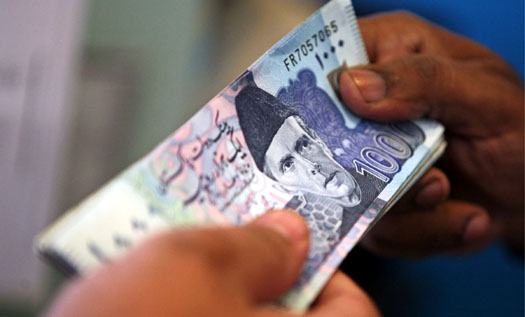—Expenditure sharing required to offset tilt of revenue shifted towards provinces after 7th NFC award
ISLAMABAD: The federal government has proposed enhancing of revenue collection or revising the divisible pool composition, and sharing of obligatory expenditure related to security and social sector to offset the tilt of revenue shifted towards provinces after the 7th National Finance Commission (NFC) award.
In a meeting of the subgroup of NFC held last week, the Finance Ministry had stated that the imbalance of vertical sharing was in favour of provinces when compared to the federal government and its spending needs.
According to the documents, there is a constitutional embargo with regard to downward change in the ration of provinces in the divisible pool taxes while there is no embargo with regard to change of the composition of the divisible pool taxes.
Constitutionally, income and sales tax and export duty on cotton are part of the divisible pool, whereas the remaining taxes have been included in the divisible pool taxes by the NFC. The NFC can adjust the composition of the divisible pool taxes in order to give some relief to the federal government and adjust the structural imbalances.
The documents further state that a comparison of the spending and receipts pattern of the federal and provincial governments for financial year 2016-17, based on June final civil accounts, has been carried out and it was revealed that out of the total receipts, 46 per cent are available to the federal government and 54 per cent to the provinces. Of the total expenditure, 60 per cent were incurred at the federal level and 40 per cent were incurred at the provincial level.
The comparison of the civil accounts also pointed out that the net receipts of Rs2.455 trillion of the federal government is insufficient to meet the expenditure on defence and debt servicing, which was Rs3.056 trillion. The fiscal deficit of the federal government was 6.7 per cent whereas the condition of the provinces was stable and balanced.
Additionally, as per the decision of the National Economic Council (NEC), in the backdrop of the 18th Constitutional Amendment, the provinces may borrow on the guarantee of provincial consolidated fund to the extent of 0.85 per cent of the GDP, in addition to the overdraft facility with the State Bank of Pakistan (SBP).
As per the recommendations of the 7th NFC award, the fiscal deficit is required to be contained below 4.5 per cent.
The ministry also proposed to set aside a percentage share for the government of Azad Jammu & Kashmir (AJ&K) and Gilgit-Baltistan, as well as for the establishment of a fund for security-related and disaster management expenditure, changing the composition of divisible pool and sharing of reduced cost of the energy.
Furthermore, according to the documents, only AJ&K government was functioning as a de-facto province and its financial need being was funded through the resources available with federal government. Now GB government was also functioning as a province and the federal government was meeting both their current and development expenditure requirement.
“The quantum of the expenditure for the fiscal year 2017-18 was Rs125 billion, which forms 3.5 per cent of the divisible pool taxes,” the documents said.
In addition to this, Pakistan has been facing a challenging security situation for last several years, both internally and externally. “Operation Zarb-e-Azb along with displacement, rehabilitation and resettlement of temporary displaced persons (TDP) has placed a significant burden on the national exchequer,” it stated, adding that for the safety and security of China-Pakistan Economic Corridor (CPEC), around 100 battalions of paramilitary forces are being raised.
“Presently, the federal government is spending more than Rs500 billion specifically for meeting the expenditures related to security, rehabilitation and capacity building of security forces to meet the challenges of law and order, in addition to the normal allocation under the head of ‘defence’. Even though some immediate security threats facing the country have receded, the situation demands continued focus and strengthening of the law enforcement agencies,” according to the documents.
























